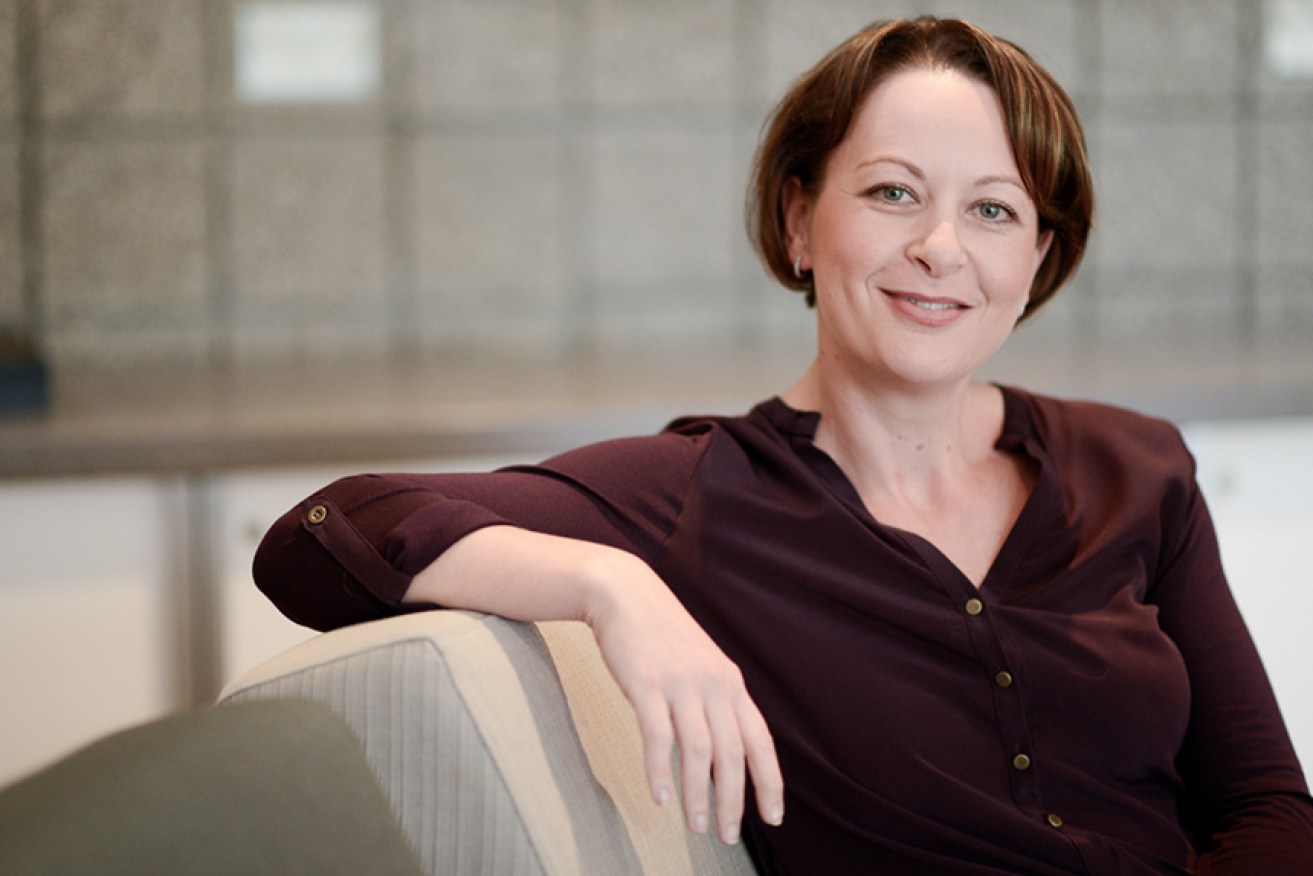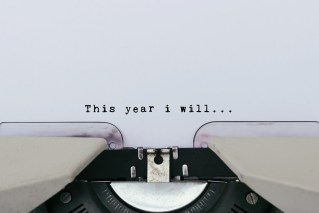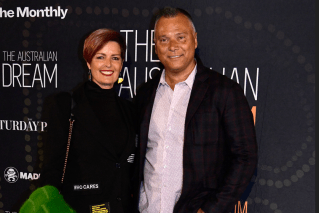A woman’s word: How to live with loss

Nat Rogers / InDaily
“Something’s happened, your husband’s had a heart attack,” the policeman said.
As if in slow motion, Adelaide ABC radio journalist Caroline Winter turned to put her sunglasses on the seat next to her, knowing that when she turned back, nothing would be the same again.
“Right, but where is he?” she said in hope, gazing at the gathered policemen and officials.
“I’m sorry, we did everything we could,” the officer replied.
• How hitting rock bottom changed my life
• Dealing with the panic attack problem
• Why blokes just won’t ask for help
That was the surreal, like-in-a-movie moment that Caroline Winter discovered that her husband Richard was dead … the husband that she’d spoken to on the phone just hours earlier, the husband who’d told her to wear something warm because it was cold, the husband who’d kissed her goodbye the previous day.
Richard Winter was 53. He had suffered a massive heart attack while co-driving in a car rally in Robertstown, north of Adelaide, on July 27, 2013.
That day, sitting in a demountable classroom on the Robertstown oval, Caroline’s world began to unravel. There were no tears at first, just shock. She began swearing, telling the police officer to f*** off, yelling at him to stop telling her what to do.
When an officer handed Caroline a plastic bag containing her husband’s watch, the horrifying reality hit.
“I’ve never felt that feeling before – I was sitting there looking around, I was staring at everyone but it was like an out of body experience. It was visual white noise,” Caroline explains.
“Stuff starts spinning inside you and it’s almost like you can’t breathe because someone’s told you something so ridiculous you just can’t believe it. Even though you understand what’s happened because they’ve told you, you just can’t take it in. I still haven’t.”
For Caroline, an ABC radio current affairs journalist , her reality suddenly involved words like “husband” “body”, “morgue”, “coroner”. For Caroline, it was like her husband, the handsome, fun, supportive marketing manager, had simply disappeared.
“It was surreal because they’re telling me this thing but they’re not letting me see him. ‘What have you done with him, where is he really’? I thought. I knew he was nearby but I couldn’t see him because it was a coroner’s case,” she says.
“Then the policeman said, ‘so, who do we call? And I said, ‘you call Richard, he’s my person’.”
Today, Caroline is composed, introspective and strong. She’s keen to talk about the concept of resilience: how she’s dealt with his death and now faces life as a widow – a word she hates. Young women are not meant to be widows.
“I think resilience is embracing shade to experience light, feeling desperate sadness to appreciate happiness and facing your fears head on, because you are in control,” she says.
She says she had to take control and “buck up” when it came to telling people about Richard’s death, including his family and their friends, because there was just “no option”.
Then there was the funeral … going to the wardrobe to choose the jocks, socks, never-worn suit and new shoes for her husband to wear in his coffin was almost too much – but Caroline did it.
“It all sounds very sad and morbid but I would almost take a step back and say this is an interesting PhD, just watching the human go through this and the bizarre surreal nature of it – then I’d realise it was me and I’d burst into tears again.”
On her father’s advice, the 38-year-old didn’t view Richard’s body.
“There’s been a lot of debate in my head for months about whether or not that was the right thing to do because … it’s not closure … it’s just that I’m assuming he was in there in that coffin because Dad told me he was,” she explains. “But if I wake up with a nightmare here on my own, I don’t want to think about Richard like that, I want to remember him the way he was, so full of life and always making me and everybody laugh. It was a tough decision but the right decision.”
The first week after the funeral Caroline stayed in bed, in her “cocoon” at her dad’s home in Perth, her hometown. But by the end of the week she realised, “I have to come out from under the doona eventually. I could have stayed there for weeks or months but it wasn’t going to help anybody.”
Since then, she is mindful to prepare herself for the big milestones – Richard’s birthday last September, their wedding anniversary on New Year’s Eve, the upcoming one-year anniversary of his death. It’s the little things that catch her out.
She froze in the supermarket during the first grocery shop after Richard’s death.
“I got as far as brussels sprouts and then I just lost it – he hated brussels sprouts but I just couldn’t do it, I had to get out,” she says. “It took me four or five goes before I could do it.
“Sometimes I’d look at the fridge and just burst into tears, because it’s those things that are indicative of a life that you build together – you go to the fridge because you are making a meal for you both. I wouldn’t sit at the table because he wasn’t sitting across from me.
“The other one that used to get me and still does is taking the bins out on a Monday night that is my constant realisation that it’s just me. Even emptying the kitchen bin and realising that it wasn’t two people full, it was just-me full.
“It all sounds very sad and morbid but I would almost take a step back and say this is an interesting PhD, just watching the human go through this and the bizarre surreal nature of it – then I’d realise it was me and I’d burst into tears again.”
But humour has also been a massive part of Caroline’s coping methods. A week before Richard died, they had had the funeral for his Uncle John and the couple had his ashes on their buffet. A few weeks later, Caroline added Richard’s ashes to the buffet, joking to friends that they’d better be quick if they wanted a spot – the buffet was filling up fast.
Going back to work was good and bad. A good distraction at times; hard to keep it together at others.
“I still have the odd day when I have to go home,” she says. “I was sitting at work recently and I couldn’t stop crying. There’s no trigger, it’s just sad. I wake up sometime and go, is this my life now?
“But it’s also changed me by giving me far more empathy and as a journalist that’s a really nice thing to have regained.”
“Moving on” is not a saying she likes because by moving on she feels like she’s leaving Richard behind. She prefers “living on”.
It will never be okay that Richard had a heart attack and died, but I need to learn to live with that.
She says she found resilience in the ongoing strength and support from friends and family.
“I’ve always said, and this is crude, but there was this pile of shit and it was covered in rose petals,” she says. “For me, this awful thing happened, more awful that anything I could have imagined, but everything that surrounded it and me was like glitter. My friends, my workplace, my family, Richard’s family, my circumstances … all of these little things made it not easier, just there was less to deal with.
“I also made a promise to myself from that first Sunday, I made my bed. I got up and had a shower and made myself presentable because I had to keep taking pride in myself because if I let that go, then everything would fall apart,” she says. “What you lose is control: my husband died, I had no control over that, so I had to find I had control over other things.
“This plays into resilience. I am a strong person – I know because people tell me – and I was like, come on, really, you’re going to throw this at me now, and I know I can’t be beaten by it because it’s just not in me to be beaten by it … and I like laughing.”
Caroline has made the big decision to take a 12-month leave of absence from the ABC, heading overseas for some time out. This week, she’s been packing up the home that she and Richard shared.
“I think I’ve found a new definition of resilience,” she says. “Last night I packed away my wedding gown, followed by the dress I wore to the funeral. And now I’m sitting on the floor, wedding cards to my left, sympathy cards to my right …”
She admits there is some guilt involved in being happy but “somewhere along the way I have started to live … I laugh genuinely now and don’t feel guilty. I’m enjoying things and it’s okay to enjoy them.”
“It will never be okay that Richard had a heart attack and died, but I need to learn to live with that,” she says. “I will never be okay with it and it is what it is.
“I spent days, weeks, months doing what they call bargaining – if I just make sure I am a really good person he’ll come back, if I clean his car every week he’ll come back, but at the end of the day it is what it is and I just have to get on with it.
“I think being resilient is allowing yourself to fall down, but eventually you have to get up again, because this life is too precious to miss an opportunity to smile and laugh.”








